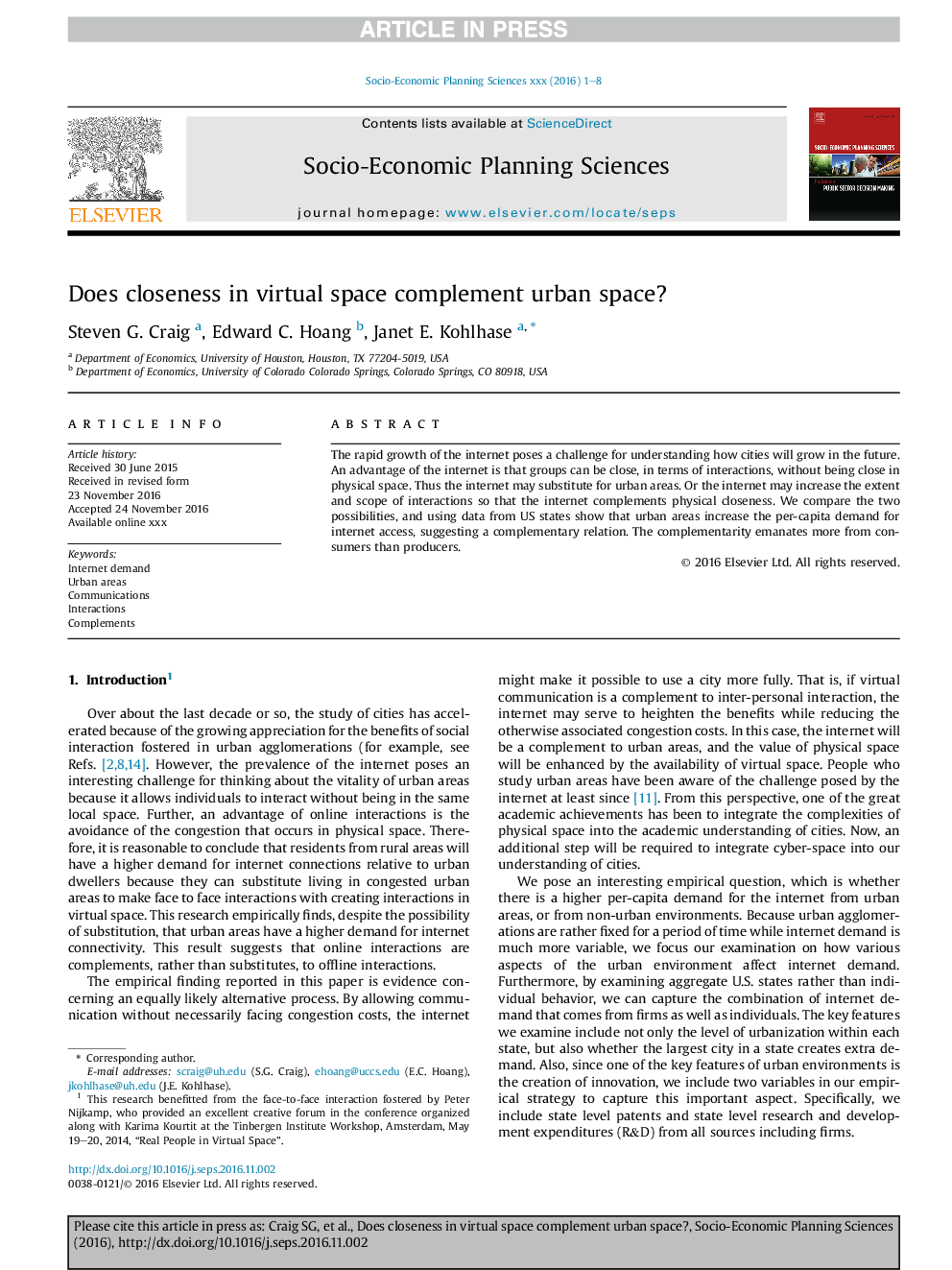| Article ID | Journal | Published Year | Pages | File Type |
|---|---|---|---|---|
| 5104447 | Socio-Economic Planning Sciences | 2017 | 8 Pages |
Abstract
The rapid growth of the internet poses a challenge for understanding how cities will grow in the future. An advantage of the internet is that groups can be close, in terms of interactions, without being close in physical space. Thus the internet may substitute for urban areas. Or the internet may increase the extent and scope of interactions so that the internet complements physical closeness. We compare the two possibilities, and using data from US states show that urban areas increase the per-capita demand for internet access, suggesting a complementary relation. The complementarity emanates more from consumers than producers.
Related Topics
Social Sciences and Humanities
Business, Management and Accounting
Strategy and Management
Authors
Steven G. Craig, Edward C. Hoang, Janet E. Kohlhase,
